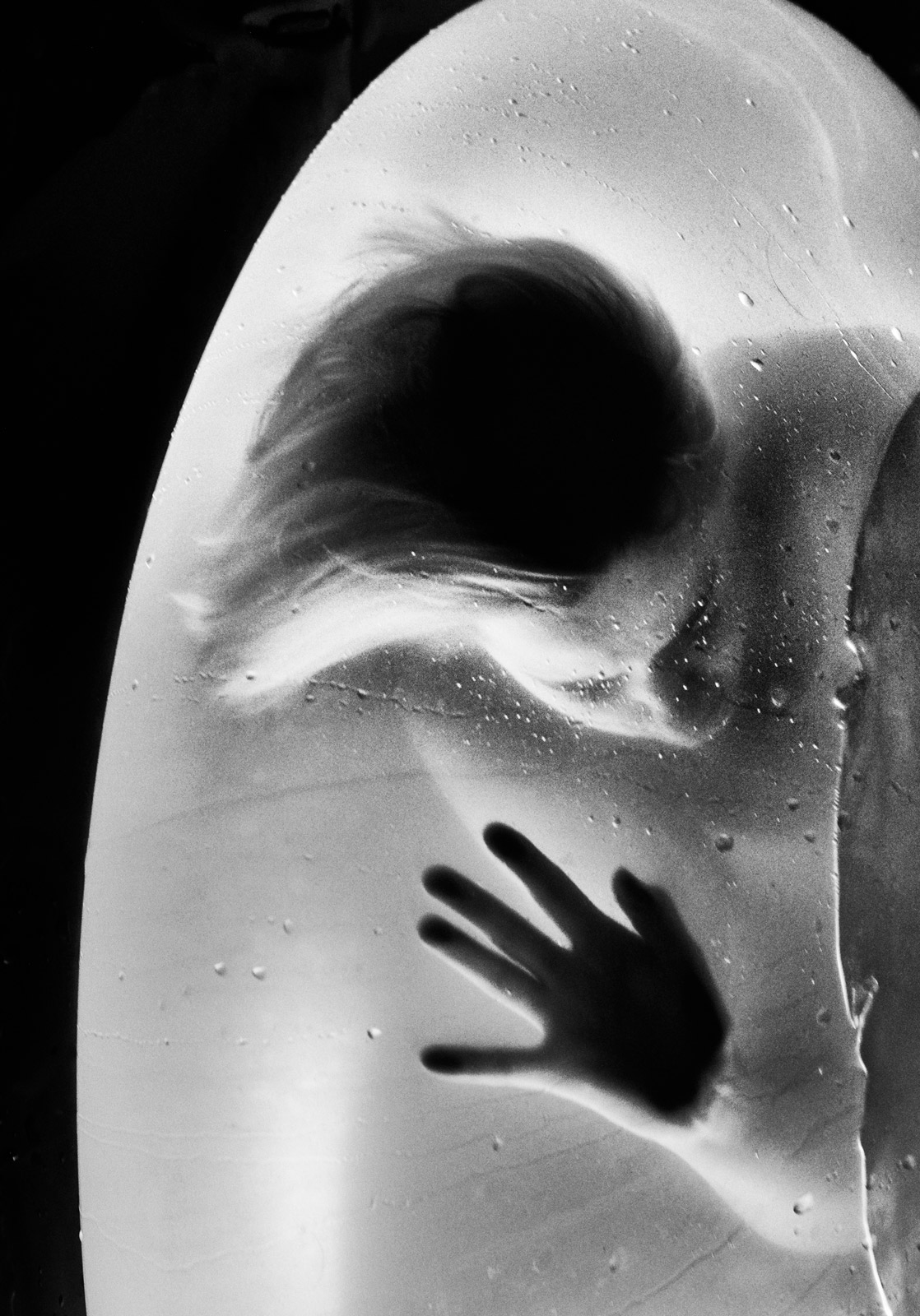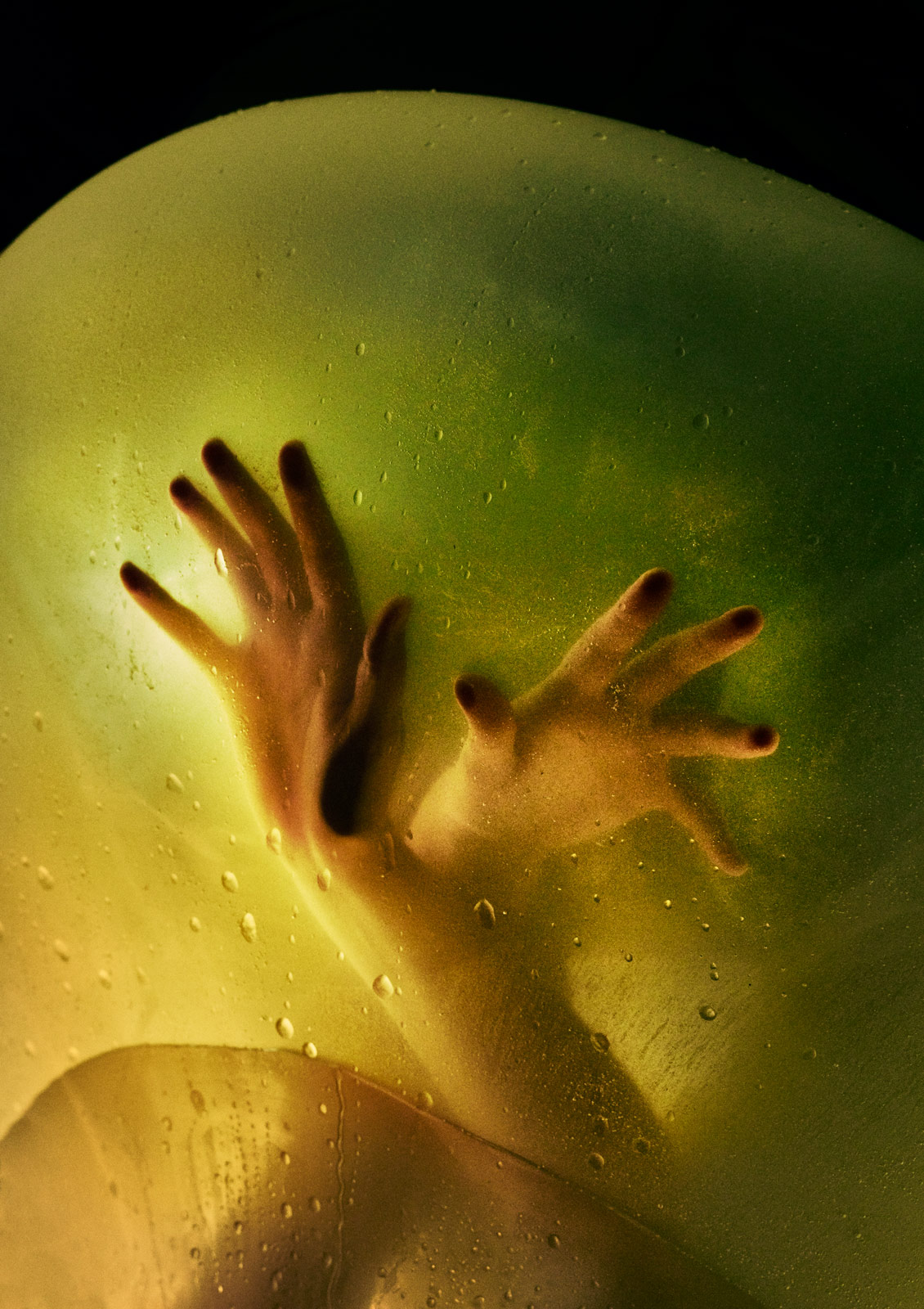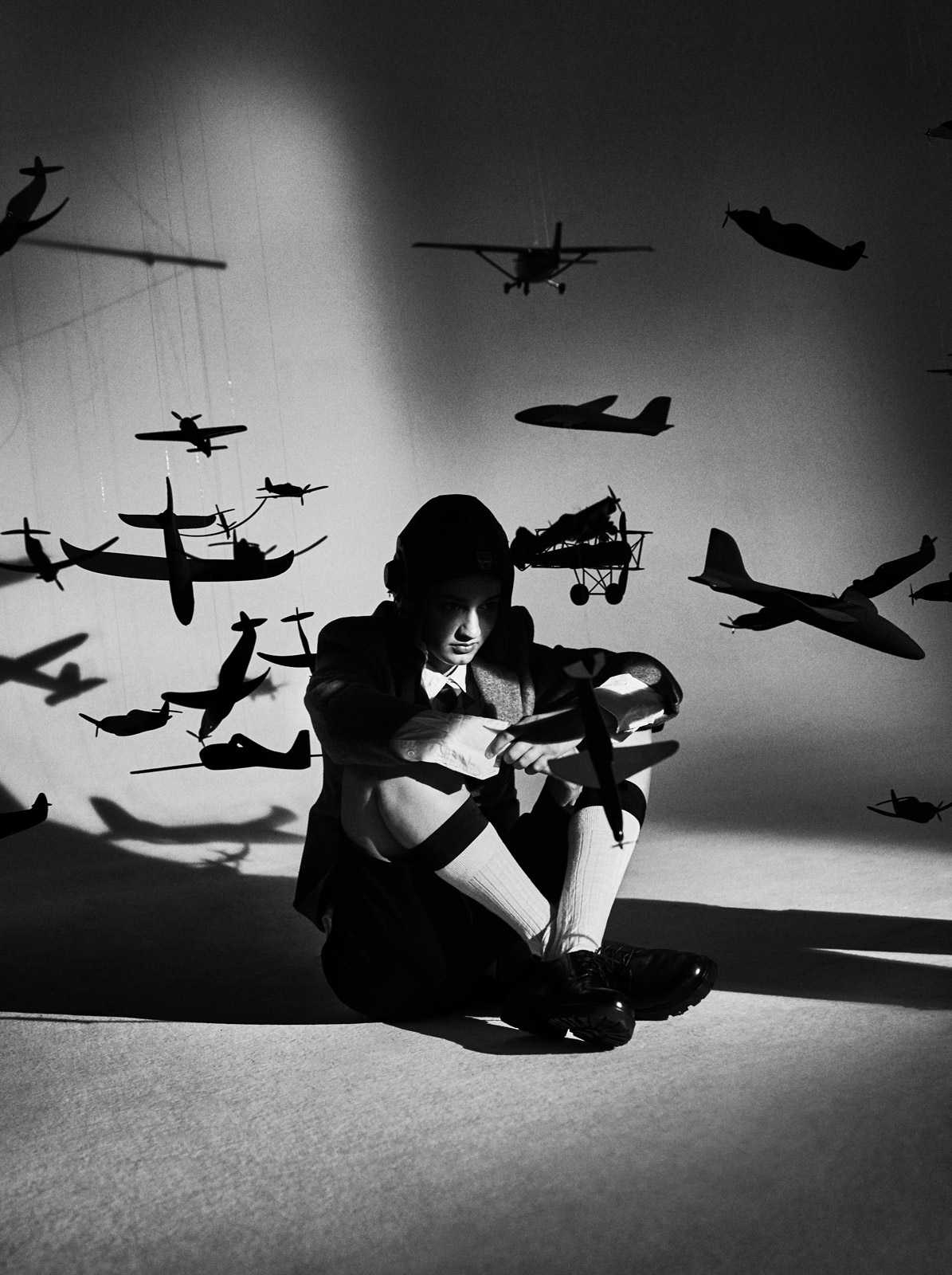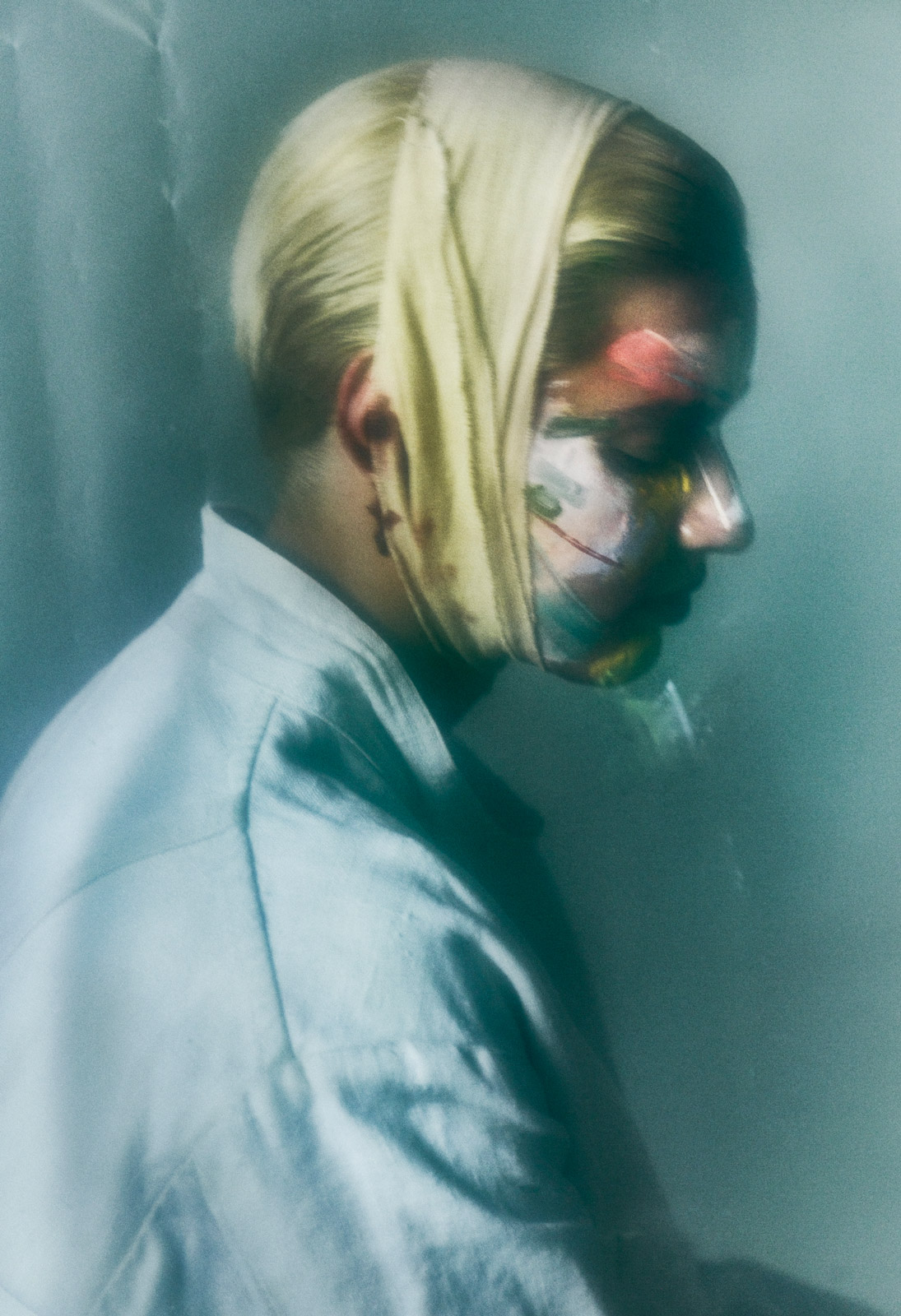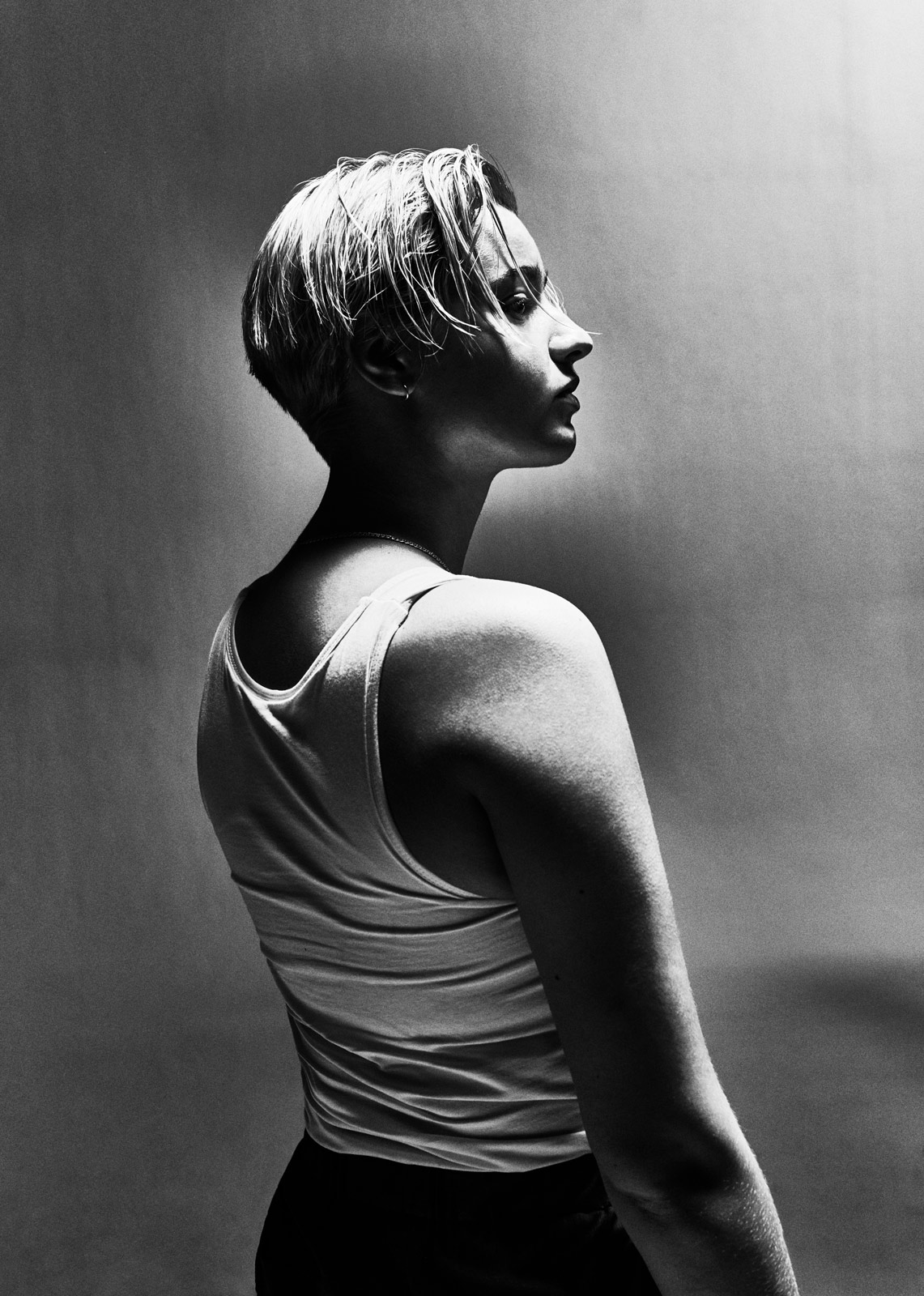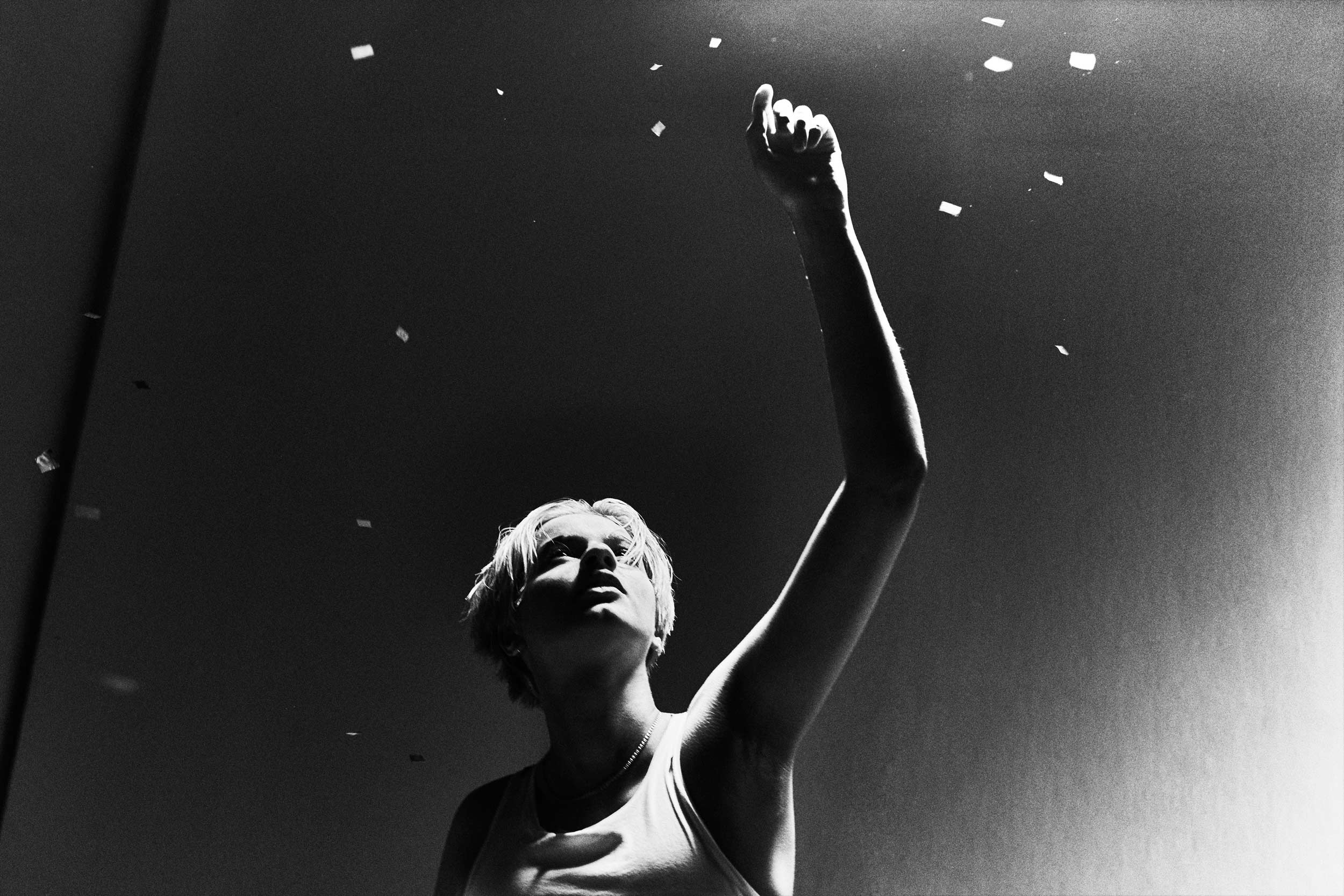"It’s devastating that you’ve been a girl your whole life, but actually it’s not who you are." As Document premieres Mavi's powerful new music video, we speak to the artist about coming out as transgender and sharing their identity with the world.
24-year-old Austrian artist Mavi Phoenix has been mixing, producing, and creating music for over a decade—part of a generation who takes a hands-on approach to their art. What started as playing around on GarageBand soon led to Mavi releasing their first album, 2014’s My Fault, at age 19, and then discovering that music was their life’s passion. Phoenix’s team also grew at a gradual pace, as Alex the Flipper, one of their close friends, began co-producing their music. Sitting at the intersection of pop, rap, and hip-hop, Mavi’s sound is characterized by a refusal to be categorized, a narrative that’s beautifully illustrated in their visuals, too. Their music video for “Bullet in My Heart” was a raw and personal account exploring gender dysphoria and how that has integrated into their life.
Document is proud to premiere Mavi’s latest video for “Boys Toys,” the title track from their upcoming album, in which their identity resurfaces and manifests as a young boy who is finally getting to play with the toys he wants. “Boys Toys” is the result of a chance meeting between Mavi and director Elizaveta Porodina, a duo with the energy of lifelong friends. Phoenix’s personal journey this year—emerging from the depths of gender dysphoria and coming out as transgender—has shaped the trajectory of their life, and has left the artist elated about what’s to come. Fans should expect a heartfelt, captivating album in April of 2020.
We caught up with Mavi to chat about “Boys Toys,” their DIY approach to music production, and the importance of being honest with their fans.
Hannah Miller: You started making music when you were pretty young, right? Age 11? What was it like when you were making it then, and how does that compare to now? Do you still have as much control over everything?
Mavi Phoenix: When I started, I was really doing everything on my own on my laptop. I was doing everything on my own, but that didn’t necessarily make it better for me. It all came from myself, but when I started working with other people, it was really nice to have the minds of other people on the project, because other people think of other stuff that I don’t think about. I’m really in the process, and I’m always producing on the track. But it’s not like I do it 100% on my own anymore. Most of the time it’s me and Alex the Flipper, he’s a producer of mine and my best friend; he’s also from the same town in Austria. Most of the times it’s just us two.
Hannah: It’s rare to find someone that’s as hands on with their work is you are.
Mavi: Yeah, I feel like it’s getting more [common] though. For example, Tyler, the Creator produced and did everything on his own on his Igor album, which truly kind of set the tone.
Hannah: Would you say you were inspired by him? Are there any Austrian artists or American artists that kind of shaped your music career or style?
Mavi: I was always very inspired by American artists. I just really was that young kid who really loved everything that came from America. It was a little bit pathetic because I really wanted to move, and when I was about 11 or 12, I really wanted to be American. The music scene in Austria at that time was not cool at all. I was really always looking to America and a very big influence for me is Tyler, the Creator. I would say he’s one of my biggest influences because I started listening to him when I was about 16. He had these really dark songs and really dark messages. I could really resonate with that. I really felt that he was being so raw and true.
Hannah: I recently watched your video for ‘Bullet In My Heart,’ which I found educational but also very impactful, and it had your very DIY aspect to it. I wanted to talk about the creative process and what that video means for you.
Mavi: It was so funny because we had the song for a few months already. [Alex and I] met at South by Southwest in Austin. We had this Airbnb, and Alex said to me, ‘Hey, come outside, it looks so cool. Maybe we can film something for ‘Bullet In My Heart.’’ We always film when we look cool or when the scenery looks cool because you can use it afterwards. So we just filmed that on an iPhone. But nothing [about being] transgender or anything was incorporated. Then, as the months went by, I discovered for myself that I’m transgender; I already knew before but I kind of told everybody around me. I used this footage that we had for ‘Bullet In My Heart.’ I felt like I did it for my friends. I didn’t feel that it would come out like that, but I just wanted to put everything that I was feeling in there, kind of like writing in a diary. Then management said that it was a cool video, it’s important to get the message out there, and that we should release the video as it was.
Hannah: Can we talk about the making of ‘Boys Toys’?
Mavi: Honestly, it was the best filming experience I ever had. It was such a positive feeling with this project. It’s more than just a video and a song, people really took it personal; everyone who worked on it had a connection to the topic, and they really cared about it. Elizaveta Porodina, the photographer that directed the music video—I knew her years ago; we met at a concert, and she’s friends with a band that I know. She messaged me on Instagram after I posted the ‘Bullet In My Heart’ video, and said, ‘Hey, I think it’s so cool that you posted this, and maybe we could do something together.’ She really connects with this topic, and she’s worked with transgender people in the past. Then, actually, we had about 10 calls just talking for hours about our personal experiences and about how we feel, it was really a therapeutic. Then we said, ‘Okay, let’s do a music video together. I said, ‘I have this song and it’s actually perfect. It’s the start of my album and my album revolves around the transgender thing and around me as a person.’
Hannah: You said ‘Boys Toys’ is the first song off of your new album. Do you want to talk a little bit about what your album will be covering?
Mavi: Absolutely. When I tell people that the album is called ‘Boys Toys,’ they’re like ‘Oh, what does it mean?’ Because a boy toy is, like, something totally different. I’m literally talking about toys for boys, very innocent. Because I always had this fascination with boys toys. I don’t want to sound sexist by saying this or that is only for boys, though, when I was young, I really wanted to play with cars typical things that boys play with. But, I was kind of afraid to say it because, at a very young age, all of us already know what we should do or what we shouldn’t do. At least that’s how I felt. So I have this weird thing now that I’m 24, I go into a toy store and buy a boyish Lego or something like that, and I don’t really play with it, but I enjoy building it, and I like having it. I go now to a therapist because of this transgender thing. I said, ‘It’s kind of weird, right? That sometimes I don’t really feel like a man. I feel like a boy.’ To which she said, ‘It’s not weird at all, because in order to become a man, you have to be a boy.’
Hannah: You’re starting from the beginning?
Mavi: Something like that. Boys Toys, for me, is like the boy in me. That’s the name of the boy that is, like, inside of me; the alter ego. The whole album kind of revolves around him, and I want to give him space; I want him to live for once in his life. On the album you can hear it; even in the song he says, ‘My name is Boys Toys,’ and you will always know when it’s him talking. Then you can imagine it’s my young, boyish self that comes forward. It’s kind of a concept album actually.
Hannah: That’s amazing. This boy, you said ‘alter ego’—is it a rediscovery of who you truly are and you’re letting it surface finally?
Mavi: Yeah, that really is a good sentence. Absolutely, I always had these transgender feelings; I just always had this feeling that I really should’ve been a boy, and I was really frustrated about it. But what I learned this year is insane. For example, that I’m really good at suppressing my feelings and just acting as though everything’s fine, but in reality, if you look beyond [the surface] it’s really messed up. To be fair, I think that’s most cases for most people. I just don’t want people to feel like, ‘Oh, I think transgenderism is this cool topic, and now I can make it my own,’ you know? I want people to know that it’s really something I struggled with since I was born. It’s not just something I think is cool or anything. It’s for real, it’s something that’s really scary, and that’s my life.
Hannah: Do you feel you’re more in a stable place where you can finally be who you want?
Mavi: I think it just takes time. To me, gender is a really interesting thing. It’s not black and white. I always was so frustrated because I felt that I was so bad at being a girl or a woman. Whenever people would say ‘Oh, you should be more girlish, or you should do this, or this would look so good,’ I always felt like I don’t want to do it, and I don’t want to be a girl actually. I just never really had the guts to really say to myself, ‘Okay, you don’t want to be a girl. It’s devastating that you’ve been a girl your whole life, but actually it’s not who you are.’ It’s really scary. But I asked myself this question this year, and it was the weirdest and most important thing. You asked whether I feel strong enough to be who I am, I don’t really know about this. It’s still very scary for me, even to talk to you right now, because it’s really personal. I was just at a point in my career, and also my in my private life, where I figured that it can’t go on like this anymore because I’m totally wasting my potential. I’m trying to be someone that I can never be.
Hannah: I can only imagine how difficult this is, and I understand that I don’t truly know you, but I’m very happy that you’re getting to do this transition.
Mavi: Thank you.
Hannah: Of course. Okay, I might completely switch up the topic of conversation. I wanted to ask about your first time headlining shows.
Mavi: Last year I had a headline tour. That was amazing. I was playing not only Austria and Germany, but also in Spain, Madrid, Barcelona, and France. It was small venues, but just to have your own show and have people come to it—they want to see you and you’re not a support act.
Hannah: Lyrically I’ve seen an evolution in your music. I wonder about your arc or your development as an artist. Do you know if there’s a certain reason for this evolution?
Mavi: I think, if you hear the album, it’s again such a development, ‘cause normally I don’t really sense development for myself. But this time I can feel it myself, because I was just so unapologetic with the topics, and it’s really raw and edgy, lyrically. I feel like a lot of people might not like it because it’s kind of graphic at times. I love listening to the songs, because it’s so cool that I said that. My manager, he told me to write down 10 sentences from the album that are meaningful to me. I had way more. Normally I was really struggling to find 10 sentences in my songs that really defined me or were important to me. I also like to write dumb stuff that I don’t really care about just because it rhymes. This time you can tell that I really thought about the lyrics.
Hannah: You hold this very close to your heart, this album.
Mavi: Oh yeah, definitely. I’m kind of afraid to put it out because it’s so personal.
Hannah: But do you find a lot of support in that process?
Mavi: Yeah, it’s good. When I released ‘Bullet In My Heart,’ for instance, the feedback that I was getting from being so personal was so awesome. From that point on I knew that was my direction. I think as an artist you can kind of choose: Do I want to have personal lyrics or not want to have personal lyrics and just rap about sex and drugs. Do I want to get really deep? You can do both, but I feel, for me, with the release of ‘Bullet In My Heart,’ I understood my fans a bit more. They really appreciate me being honest, being raw, and talking about myself. So I took that as inspiration for the album.



